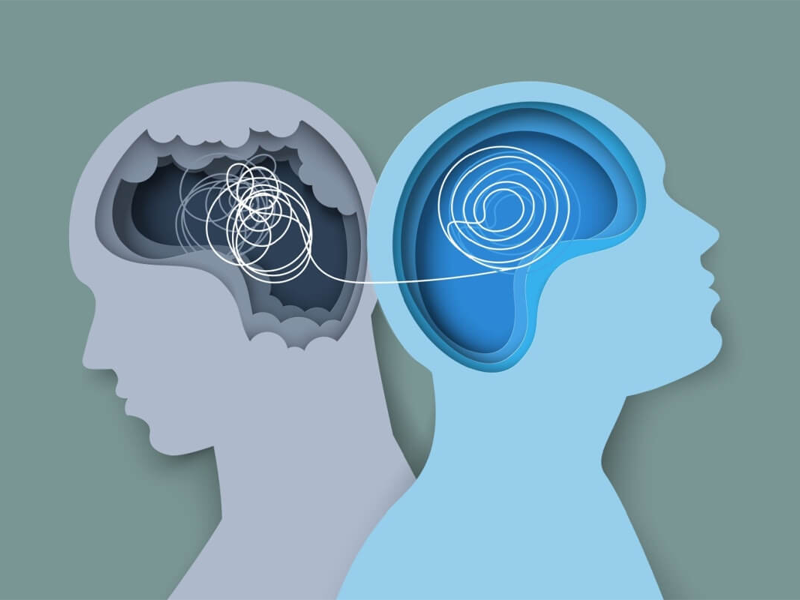Introduction
Grief is a journey no parent wishes to tread upon. The loss of a child is so wicked that it changes everything in a mother. But this journey of sorrow brings an opportunity to something new—grief turns into a journey of love, our remembrance, and strength.
Heartfelt Connections by Marie Kurka Brown investigates how fetal microchimerism gives us a new lens with which to view loss. Rather than allowing her maternal concern to be defined by absence, she can bask in the knowledge that her child continues to be present in the most intimate of ways.
Reframing Loss
Society mostly treats grief as something to go through. But the real recovery comes in ways of integrating love into daily life—not forgetting it. Fetal microchimerism provides a scientific basis for all this (proof that even this mother’s-child bond is not merely emotional but also physical, physical!).
It can be seen not even by an end but continuing courtship-an ongoing transformation, maturation, and continuation in shaping a mother’s heart. Whereas most parents shut their doors to memories associated with pain, many find comfort in embracing those memories, allowing the continuation of their love for their child to develop in new and cherished ways. All that becomes more concrete and less abstract emotion through fetal microchimerism.
Finding Meaning After Loss
Healing through remembrance, such as:
- Making a legacy in his or her name through a charitable project, scholarship endowment, or works of art;
- Getting active in their immediate community through support and advocacy to help others who faced similar experiences;
- Changing their own spiritual beliefs for connection and continuation;
- Embracing the science of fetal microchimerism as a salve to understand that their child remains part of them;
- Creating traditions to keep their child’s memories alive; for instance, lighting candles on significant date, writing letters to their child, or dedicating a garden space in their honor;
- Many others using art, poetry, music, or journaling to express their emotions.
Role of Support Systems in Healing
One of the hardest parts of grieving is the isolation it often brings. Many parents feel as if they are “expected” to “move on” or, even worse, keep from talking about their losses to avoid uncomfortable feelings in others. However, finding a shame-motivated support network of people who understand and validate grief can be healing itself.
Support groups, whether in real life or online, create an open platform about the experiences of bereaved parents without fear of judgment. Knowing people going through the same loss helps in breaking the cycle of isolation coupled with more learning from the different healing journeys of others. Some parents would prefer professional counseling or therapy, while others may take the spiritual guidance or even faith-based communities.
Family and friends also count. Sometimes, well-meaning phrases like “everything happens for a reason” can come off as more dismissive than supportive. Parents must feel free to say what they need—space, companionship, or just someone to listen without trying to fix things. Healing is about not “getting over” grief but learning to carry it on in a manner that does justice unto both the lost child and the love that remains.
How Fetal Microchimerism Changes the Narrative
Fetal microchimerism has given us a very deep, fundamental understanding that death does not sever those connections. This scientific revelation is so practical for bereaving parents because it assures them in the fact that their bond is not severed but simply changed.
This idea fit many spiritual and philosophical systems of thought that hold to some kind of continuity for love. Whether through the lens of science or spirituality, that a child essentially remains inside their mother can provide a very great source of comfort to many.
Turning Pain into Purpose
Many parents who experience the shock of loss find their way through the pain by converting it into something meaningful, such as:
- Volunteering with organizations helping families that have experienced a similar loss
- Speaking or writing publicly on their journey to help others understand that they are not alone
- Creating rituals to honor the continuing love they have for their child
- Lobbying for increased understanding and support for those who experience pregnancy or infant loss
- A large number of parents find meaning within their grief, and this meaning transforms it into something that not only heals the parent but others as well.
Embracing a Presence Reimagined
Rather than focusing on the things they have lost, parents often heal through recognizing what still remains. Death does not diminish love; it merely pushes that love forward in the living after it. The knowledge that a child’s cells live on inside parents can serve as a powerful affirmation that this connection continues.
Instead of seeking closure, the parents can embrace the idea of continued love-a love that exists in memories, in biological connections, and in the ways they choose to honor their child’s presence.
Conclusion
Grief does not need to be the end of the story, and knowing, loving, and standing strong can translate this into a powerful force for transformation. Heartfelt Connections reminds readers that love does not end; it simply takes a different form and stays with us for all time. Science-fetal microchimerism, acts of remembrance, or the might of community could ultimately bring someone closer to appreciating the love that never fades.




